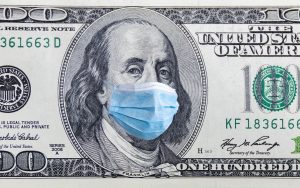 In the wake of the COVID-19 pandemic, states are beginning to pass new legislation designed to protect and reassure businesses facing unknown and significant liability risks. At this point, every state has begun some form of phased reopening following lengthy business shutdowns and stay-at-home orders. However, COVID-19 cases continue to rise in several states, and a vaccine appears unlikely to be available before 2021 at the earliest. Businesses, including building owners and operators, are now being forced to make decisions on how and when to reopen. While Congress has so far failed to enact any new federal liability protections related to the pandemic, several state legislatures have enacted new liability shields that may significantly alter premises liability for businesses and building operators.
In the wake of the COVID-19 pandemic, states are beginning to pass new legislation designed to protect and reassure businesses facing unknown and significant liability risks. At this point, every state has begun some form of phased reopening following lengthy business shutdowns and stay-at-home orders. However, COVID-19 cases continue to rise in several states, and a vaccine appears unlikely to be available before 2021 at the earliest. Businesses, including building owners and operators, are now being forced to make decisions on how and when to reopen. While Congress has so far failed to enact any new federal liability protections related to the pandemic, several state legislatures have enacted new liability shields that may significantly alter premises liability for businesses and building operators.
States that have enacted the most significant measures to date are as follows:
- Utah was one of the first states to adopt significant premises liability protections following the COVID-19 pandemic. Utah S.B. 3007 provides premises owners and operators broad immunity for “damages or injury resulting from exposure to COVID-19” so long as there was no willful misconduct, or reckless or intentional infliction of harm. Importantly, premises owners and operators are provided this protection without the need to make any affirmative showing or make any application to the state.
- North Carolina has also taken proactive, although narrower steps to address these liability concerns. North Carolina S.B. 704 provides essential businesses, as defined by the state’s stay-at-home order, with a limited immunity for “any injuries or death alleged to have been caused as a result of the customer or employee contracting COVID-19 while doing business with or while employed by the essential business.” This limited immunity is limited to negligence suits and does not apply to acts or omissions constituting gross negligence, willful misconduct, or intentional infliction of harm. The protection is slated to remain in effect until the expiration of the COVID-19 emergency declaration.
- Oklahoma has enacted a new statute limiting liability for reopening businesses following government-directed guidelines. Under Oklahoma S.B. 1946, businesses cannot be liable for COVID-19 exposures when acting in compliance with, or consistent with, any applicable federal or state regulation.
- Similarly, Wyoming adopted SF1002, which provides, among a series of COVID-19 response measures, immunity for “any health care provider or other person, including a business entity who in good faith follows the instructions of the a state, city, town or county health officer in responding or who acts in good faith in responding to the public health emergency is immune from any liability arising from complying with those instructions or acting in good faith.” This immunity does not apply to acts or omissions constituting gross negligence or wanton misconduct. Notably, the Wyoming Senate originally passed a broad immunity protection for property owners and businesses entities for any non-intentional COVID-19 exposure, before ultimately passing this much more limited immunity shield.
Adoption of these liability protections remains controversial. While offering significant reassurances to businesses, lawmakers have also raised concerns about leaving employees and customers without meaningful remedy for COVID-19 exposures. As seen above, states have attempted to balance these concerns with varying approaches. While Utah has given broad protections to all premises owners and operators, a more common theme is to limit these protections to essential businesses, and to tie protections to acts or omissions made in furtherance of government-issued health guidance. A bill passed by the Kansas legislature but not yet signed into law by the governor would also follow this compliance with health guidance model.
Ultimately, the COVID-19 pandemic presents potentially drastic liability risks for all businesses. Premises owners and operators should be particularly aware of whether new liability shields have been adopted in their state as this industry is uniquely susceptible to COVID-19 related litigation. With more states slated to adopt protections, and a new federal liability shield still a possibility, any business reopening plan should ensure that company leadership is familiar with all available liability protections and is prepared to demonstrate compliance with any applicable laws in order to mitigate COVID-19-related risk to the fullest extent possible.
 Gravel2Gavel Construction & Real Estate Law Blog
Gravel2Gavel Construction & Real Estate Law Blog


